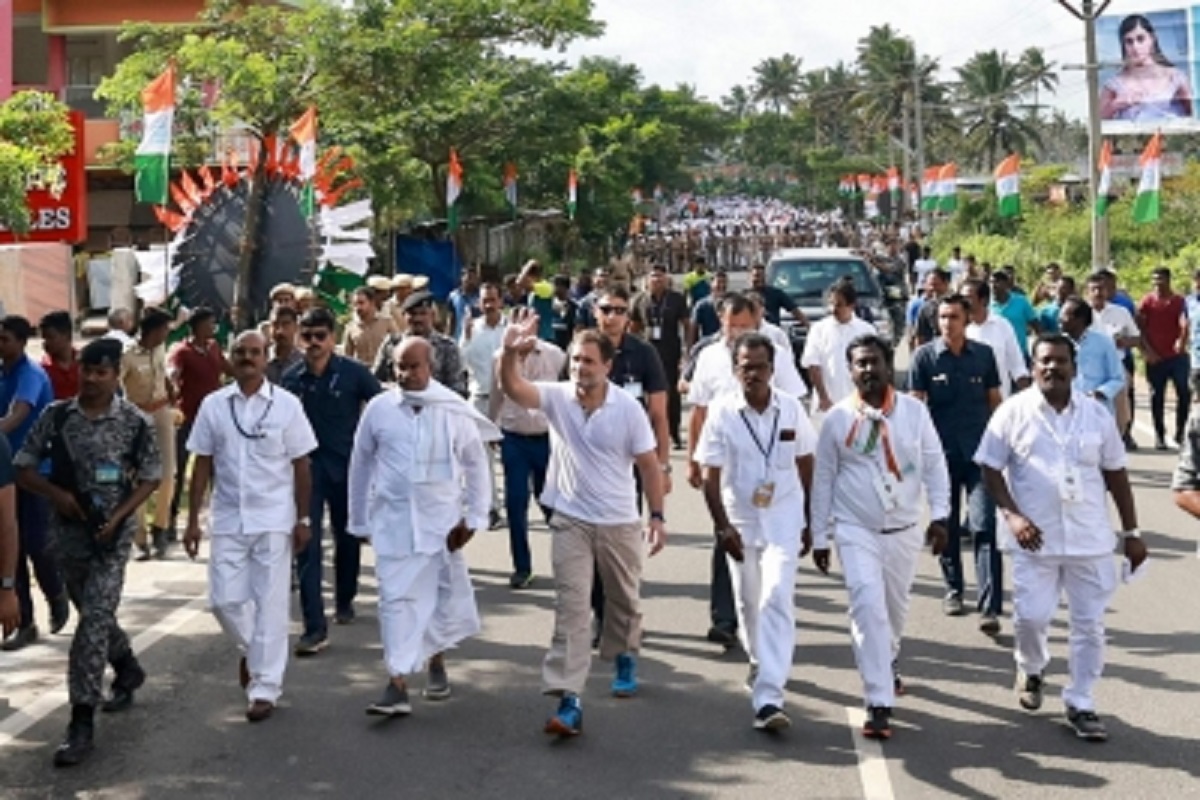Taunted mercilessly by his political opponents and commentators sympathetic to the ruling dispensation that the Congress Party is in power on its own in only two states of the Union (Rajasthan and Chhattisgarh), the party’s most important leader Mr Rahul Gandhi has shown an admirable focus on the Bharat Jodo Yatra. The ongoing walkathon continues apace in South India, having covered the states of Kerala, Tamil Nadu, Karnataka and Andhra Pradesh, and most ground reports speak of the traction the party is gaining. Yet, there is no ignoring the fact that the Election Commission has announced the date for the Assembly poll in the hill state of Himachal Pradesh which is to take place in a single phase on 12 November.
The Congress has substantial skin in the game in the state, is the main political opponent of the ruling BJP, and has an opportunity to potentially add to the measly tally of states it governs if it brings all its energies to bear on Himachal Pradesh. But there is no sign of that happening. As former Goa Chief Minister and Congress MP Mr Francisco Sardinha said on Monday: “Rahul Gandhi should concentrate on the poll-bound states of Himachal Pradesh and Gujarat… The Bharat Jodo Yatra is very important for the Congress. We want the party to grow at the grassroot level. He has done a fantastic job.
Advertisement
But now I want Rahul ji to stop (the Yatra) immediately and go to Himachal Pradesh.” It is a sentiment many Congress leaders share though it doesn’t change the reality that the BJP is in pole position to retain power in Himachal Pradesh. In the 2017 election, the BJP won 44 seats to the Congress’ 21 in the 68-member Legislative Assembly with a whopping 48.79 per cent of the total votes cast. But the Congress did manage a very respectable 41.68 per cent vote-share too. So, why is the Congress fighting shy of, well, fighting the election with all it has got? Especially, as the Aam Aadmi Party is waiting in the wings to occupy the Opposition space in the hill state?
The thinking seems to be that Mr Gandhi has decided he will only play the long game, as it were, and take responsibility for the results of only that play. It is the same line of thinking which has seen him ~ reportedly despite interim Congress president Ms Sonia Gandhi’s wishes ~ refuse to lead the party in an official capacity and insist upon an election for the post of party president which a non-Gandhi will now occupy. The immediate electoral fortunes of the Congress have been, it appears, left to the tender mercies of its state leadership(s).
As political strategies go, this is a high stakes gambit. Not to put too fine a point on it, the primary function of a political party in a democracy is to win elections. Once that ceases to be a priority, the danger of a collapse of the party itself grows. But Mr Gandhi has made it clear by his actions that it is a risk he is willing to take as he attempts to rebuild the Congress.











